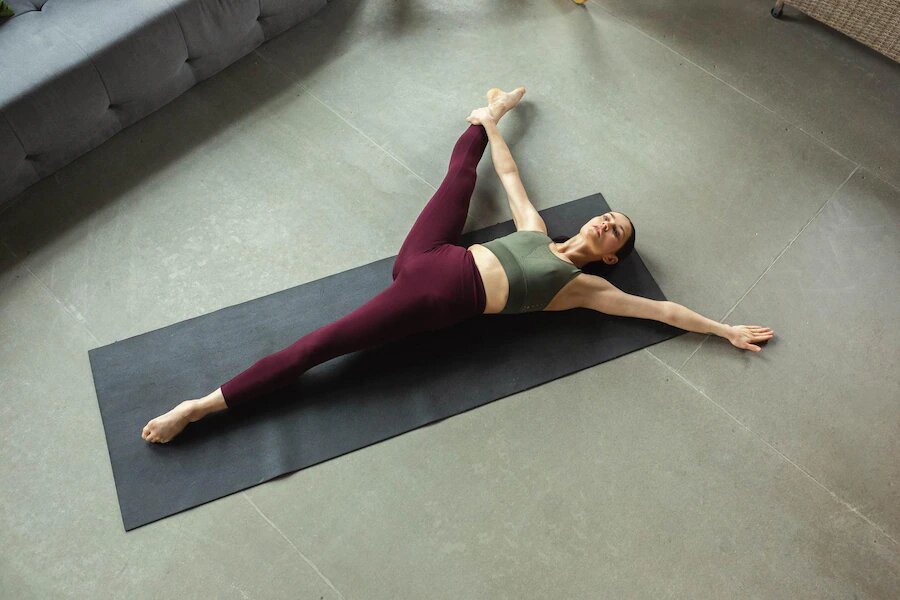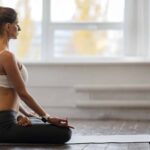A Diffident Young Adult
Drained.
The blaring sounds of the repetitive alarm awoke me from my deep slumber on a frigid December morning. Groggy and benumbed, I felt the repercussions of my long night of drowning myself in alcohol. I had class in an hour. I frustratingly turned off the alarm, rolling my tired body to the side, trying to relieve the pounding, splitting headache. I fell back asleep.
Truthfully, I hated this feeling. The unmotivating sense of reality I was living in was not serving me. But I was so caught in this cyclical feedback loop of partying, numbing, and depletion of self that I really did think that this was a part of life’s joy. Afterall, college is a time to be young and dumb, right? It was so easy to blame my actions on the ignorance of being “free” to do as I pleased. It was even easier to blame my peers, as that was just the thing to do.
Many years I had spent neglecting my true self. She was tucked away in the corridor of my body, unable to breathe. My mind was the driving force of my influences because it lacked discipline. If I didn’t want to go to class, I wouldn’t. If I wanted to lie, I would. If my mind wanted to distract and numb itself, it did. My emotions were large enough to force me to act upon them. If I was angry, I would be cruel to others. If I was sad, it was an excuse to gain attention. If my emotions led me to fall for a manipulative man, it was okay, because I didn’t know what self-love was anyway.
Greeting The Unknown
No one had ever introduced me to the idea of mindfulness or yoga, or even guides on how to be better. But after the death of my mother in December of 2021, the intuitive self began uncovering herself through synchronicity. I had always recognized my depth, but like most of us, I feared it. Starting with simple yoga classes offered free of charge at my University, I began experiencing a sense of movement within my body again. I didn’t understand at the time, but there was so much pain concealed within my muscles and fascia. I would leave class in tears. It forced my mind to feel, to recognize, and deal, rather than desensitizing itself.
Best yoga teacher training was introduced to me through a friend. She had ambitions to travel, as did I, and we decided that we were going to apply for the 200 hour teacher training together. Familial circumstances didn’t allow her to continue this path, however, I decided to go.
The reason why I came to complete the training wasn’t because of some dream to become a yoga instructor, share the beauty of its art, and learn how to be better. The reason why I went is because of the mystifying, clever guide that is my intuition. I was driving back to my college home from my childhood home. The weather started to warm, my college career was creeping its way to an end, and I had no direction. I asked myself a series of questions. Without the comfort and guidance of my mother, I had but only one way to try and understand what was to come.
This was the first moment of my entire life that I became my own mother, my own stillness in the chaos of the unknown.
Through this experience, I have come to learn that when the mind stops trying to problem solve, it gives way for a new voice to set in. She, the vastness and depth and bliss within me, said to go for it.
I booked my flight to Bali the very next week.
Divergent State of Mind
You see, there must be a period in each of our lives that leads to some sort of level of self-discovery. Otherwise, it is so easy to become unconscious, walking aimlessly on Earth, unable to recognize the beauty and power that has always been within ourselves. It doesn’t even necessarily matter about the “why” or “what’s the point” questions, it is about discovering how to be better. When I was dowsing myself in alcohol or numbing with distractions, I could not recognize the completeness of my being.
Yoga became a door that held open a possibility of feeling an awakened state of consciousness. It was not an easy door to break through. It posited questions about having to deal with challenges. How do I face challenges and how do I understand myself in the midst of said challenge? The intensity of the practices and schedule forced my mind to mirror itself in this life. There was nothing to save me from the depth of my despair. My first night in Bali, I dreamt of my mother’s suicide, startling me as I woke up in a sopping puddle of tears.
This experience untangled the knots that I held so tightly within me. The three weeks spent in teacher training allowed me to rewire neural synapses that previously had me believing my emotions were all I had and that I was not someone to be loved. It allowed me to learn how to discipline my mind without being cruel or judgmental or impatient with myself. It represented a way of eating to cleanse and nourish my body and mind, rather than destroy it. This adventure empowered my ambition to not only become a better, kinder version of myself, but also to teach yoga.
A book titled, The Awakened Brain, by Lisa Miller is about the refusal to accept one of the most pervasive assumptions of our society: the belief that science and spirituality are at crossroads. She says that when we awaken our ventral attention network, we are then able to broaden our perception of what counts as real, life-changing information. She is basically saying that through her research, she found that practicing mindfulness turns down the “little me,” or the mind, so that an awakened awareness can emerge. Drawing back to 6 months ago when I was in the process of my teacher training, I was able to quiet the little me.
Her book is an excellent read in order to understand how to be better at understanding depression in the mind.
Mindless Ignorance
She emerged.
I felt better. I felt healthier and stronger and more in tune with myself. But what I have come to realize is that I had not learned how to be better just because of one yoga teacher training. Best Yoga was the door, but I was the one that had to continue meandering my way through, perhaps even holding a candlelight through the darkness of the uncharted. The wise yoga teachers warned us of the entrance back into our reality. The mind is articulate and careful as it finds ways to stick itself into the cracks of comfortability, safety, and assurance. Before I knew it, I had lost the spark to practice meditation, mindfulness, and yoga.
Feeling better just tunes ourselves back into the state of emotion. Since I felt better, I didn’t feel the need to practice anymore. I even started teaching at a dance studio and considered that to be practice enough. I was pleased with myself, teaching injury prevention strategies to blooming new dancers. I fell back into letting anger overrun my actions and sadness seep into a state of distraction.
We can feel better all we want, but that does not alter our perception of ourselves. It does not change our ego and ingrain a better self. Emotions are impermanent. Our minds are powerful tools to help us to sense our surroundings, protect ourselves, problem solve, and surprisingly store around 2.5 million gigabytes of memory. But it can also be our worst enemy unless we learn how to work alongside of it.
Best yoga teacher training gave me an opportunity for my soul to transpire. But it was my job to continue shielding her, giving her way to provide this body and mind with a continuum of blissful states. This blog might be an interesting read, but it may be that you (the reader) must draw your own conclusion on how to be better.
However, my advice is to learn true self love. Find that emotional anguish is only but a warning sign that you are not living through your true self. Find stability within yourself, maturing as you realize that you don’t need to be in anyone else’s body. Understand that you have the perfect tools in order to live out a purposeful life, as Everett would say. The day-to-day practice, the healthy lifestyle of eating clean and energizing your body by physical activity, will fall into place once you develop a love for yourself.
How to Be Better – How Can I Be a Better Person?
So many of us ask, how can I improve myself everyday?
It is natural to become avoidant of self-exploration at some point in our lives. The reason why so many of us avoid introspection is because we have a desire to avoid the uncomfortable states and cognizance that comes with it. Introspection is so difficult because it is requiring you to expose your depth and be honest with yourself. Examining ourselves with an honest lens is necessary to come out from hiding, and only then, can we begin to grow.
Introspection can start with little things like focusing on your breath’s personality while standing in a long line or resisting the urge to scratch an itch, only to find that this too was impermanent. Or introspection can be deeper, digging into questions like, “why did I lie to my partner about this?” or “why is it so difficult for me to find forgiveness in my heart?” or “how does my childhood affect the relationships I have in the future?” A lack of self-introspection can even look like an avoidance to make hard decisions. How to be better starts with introspection.
Let me start with an example:
Sarah is a mother of two. She grew up with a father who was an alcoholic and her mother struggled for sufficient income. As she got older, she found a husband at the age of 22 and began having her children quite early. She is a passionate writer and an incredibly loving friend and mother. However, she finds it challenging to admit that she is wrong. Her teenage daughter gets underneath her skin, challenging her values and beliefs. At times, in the thick of an argument, her daughter makes valid, responsible claims. But Sarah still struggles to admit her wrongdoings, no matter how big or small.
Why?
It may be that Sarah’s unwillingness to admit her mistakes is a sign of a deep insecurity. It could also mean that because of her resistance to admit her faults, she experiences a fear of inadequacy. Unfortunately, the same fear of this external inspection also makes her afraid of self-reflection. This not only affects Sarah’s mental state, but it also affects the relationships that she’s in.
As yogis, we recognize that humans have energy channels, the nadis or chakras, that can become blocked. A lack of introspection creates blockages, cutting ourselves off to feeling the fullness we have always been meant to feel. Having a lack of awareness does not mean that you’re a bad person or that you’re incapable. We all have things we can do to improve ourselves. Recognizing this is one of the major key steps on how to be better. I even find myself having a difficult time practicing self-awareness by being quite vague about my feelings at times. Becoming more aware will grant us the opportunity to allow prana to flow freely throughout the energetic centers of our bodies.
On my own personal account, I have found a couple of techniques that draw me in to become more introspective:
Wherever I go that requires me to stand in long lines or I find myself alone, I focus on my breath. I illustrate its dance in my mind, visualizing its waves across the psoas muscle and organs of the pelvis. If this doesn’t work, I find it effective to perform some box breathing techniques. Inhale for five seconds, hold for five, exhale for five seconds, and hold for five.
Another technique I find so useful is resisting the urge to scratch an itch and notice as it slowly simmers away on its own accord. The benefit of this can be enormous. Perhaps you’re driving and you receive a notification on your phone. The mind wants to check it, needs to know what is so important. But this could completely alter your life, possibly injuring yourself or others in a car accident.
On a deeper-rooted level, I find myself practicing breathwork or meditation. Mindfulness is a process; you never quite reach a destination of self-discovery. Before one starts the journey of introspection that dives into perhaps some of your greatest insecurities, you must let the ego go. Meditation and mindfulness really help with this. Once you’ve begun to uncover the ego, exposing itself, you can start to journal more. For me, I used to journal all about the people or life events that have hurt me. What had caused me so much suffering. But I lacked the awareness to ask myself about how I reacted in those situations.
I lacked the idea or concept that it could have been me that was the root cause of my suffering, and not my external circumstances. From here, try to create an awareness in everything that you do, and ask yourself why you do the things you do. Discover, learn more, feel, sense, and experience who you truly are.
These techniques will teach you how to be a better person and be happy through time. In addition, you will understand how to be a better person in a relationship as well.
I never said this would be easy.
The knowledge of looking inward and not treating yourself as a victim will become a superpower, a tool to enhance your life and your relationships. The point of this journey is not to problem solve your way through. This journey is meant for you to discover the mystery and uncover your soul, your real you. Disconnect from the body and mind control, develop a love for yourself that is unbreakable, and learn to develop a self-awareness. That is how to be better, and not just feel it.
References:
Charlie Chaplin on Self-Love
Self-Reflection Questions to consider for journaling
Self-Reflection Questions for Introspection [+Exercises]


